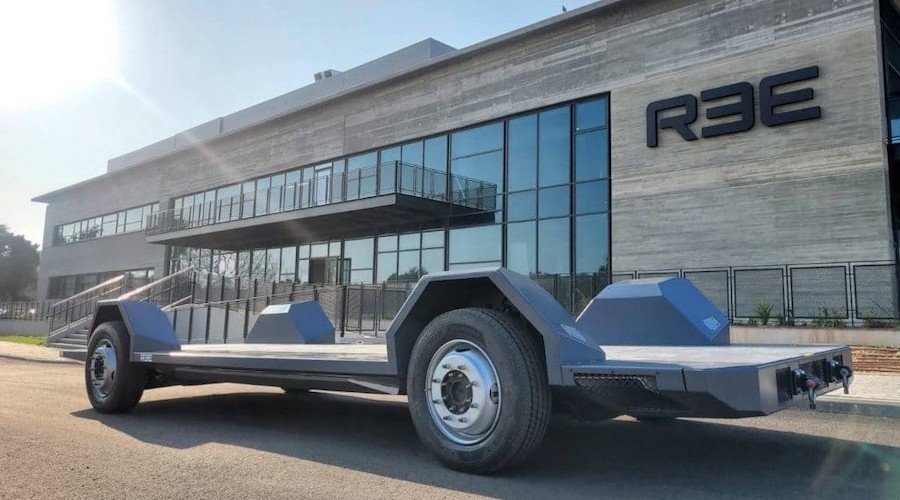REE Unveils New Electric Platform for Delivery Vehicles, Boasts a Range of 370 Miles

Unveiled at this year’s CES (Consumer Electronics Show) in Las Vegas, the P7 was designed based on functional and operational specifications from one of the world’s largest delivery companies, whose name has not been disclosed yet by REE.
The P7 electric chassis is fully flat from end to end and, according to the manufacturer, EVs and autonomous vehicles based on the platform can achieve ranges of up to 600 km (over 370 miles) on a charge, thanks to the 120-kWh battery. They would be able to reach a top speed of 130 kph (80 mph).
It has a length of approximately 25 ft (7.6 m) and a width of almost 8 ft (2.4 m) and has a peak motor power of up to 100 kW x4. It offers X-by-Wire technology with fail-safe and independent wheel control.
Offering generous interior space and volumetric efficiency for vehicles in classes 3-5, the chassis can comfortably carry both cargo and passengers (up to 30 passengers). The P7 is great for a variety of applications, being useful for delivery and logistic fleet owners, school buses, mobility operators, to give just a few examples. As explained by Daniel Barel, REE’s CEO, the platform’s modularity and versatility allow it to be configured in different sizes and optimized to meet the client’s needs, offering unlimited design freedom.
REE announced recently that it’s starting trials of the P7 platform, with the first prototypes being available for customer evaluation in the first quarter of 2022. Trials will take place at the company’s Engineering Center of Excellence in Coventry, U.K., and its Advanced Research & Development Center in Tel Aviv, Israel.
Related News
